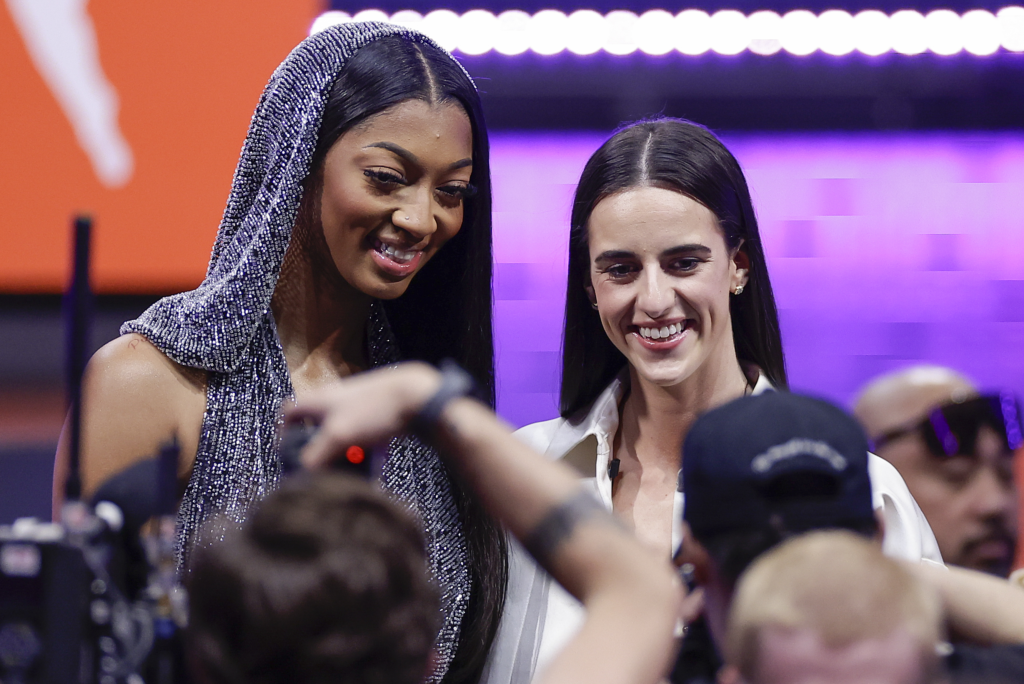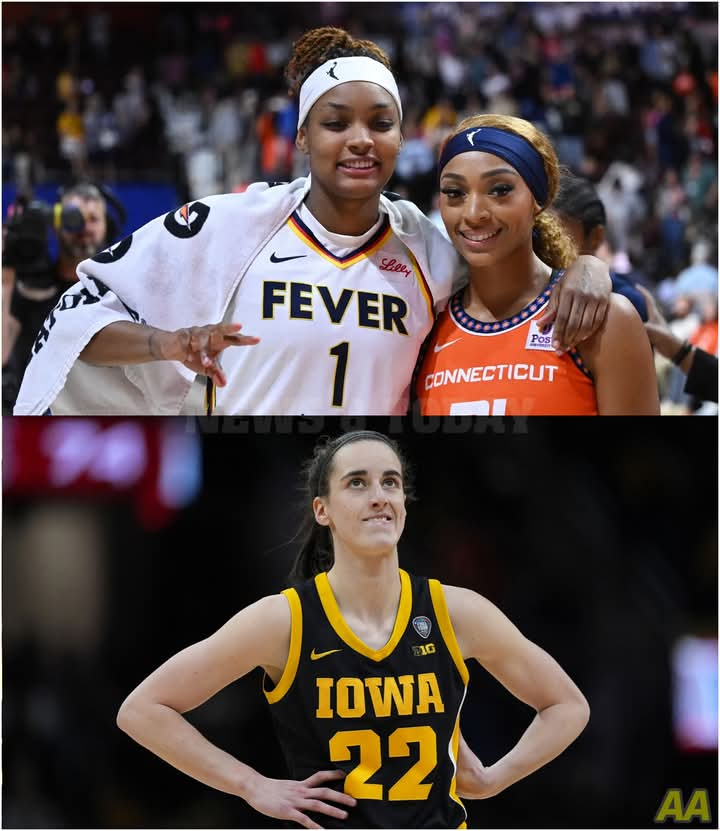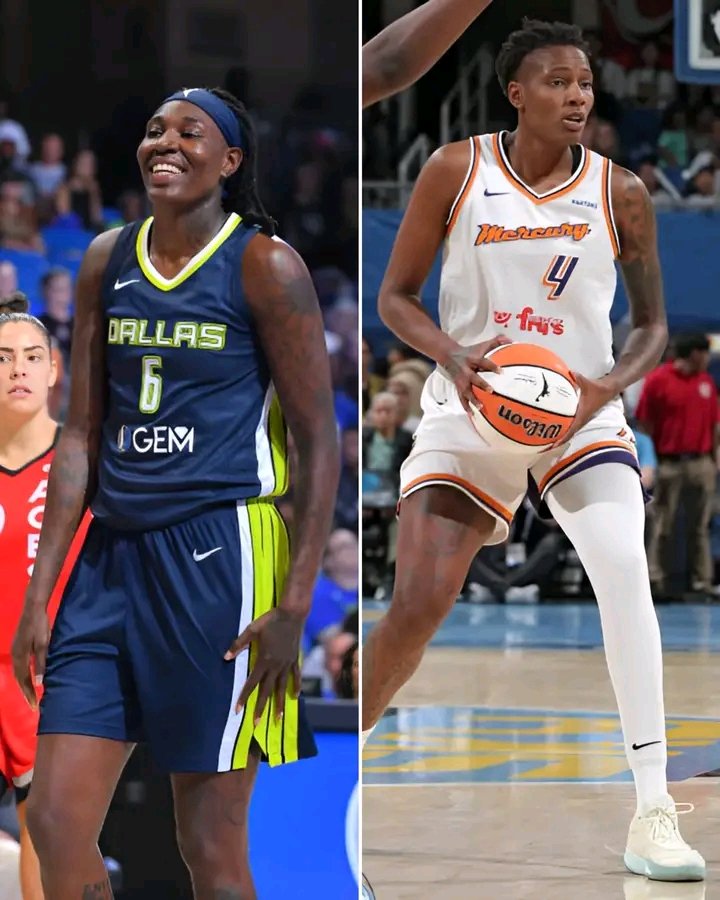
Angel Reese has made headlines once again, but this time, it’s not for her impressive skills on the basketball court. The Chicago Sky star recently opened up about her growing frustration with the spotlight being firmly fixed on Caitlin Clark, her rival and standout player for the Indiana Fever. Reese, known for her unfiltered honesty, expressed her belief that her contributions to the sport often go unnoticed in comparison to the accolades Clark has received during her meteoric rise in the WNBA.
In a candid interview, Reese shared her perspective on the media’s tendency to focus disproportionately on certain athletes. “I’m not saying Caitlin isn’t great; she is,” Reese began. “But it feels like every time I have a big game, it’s overshadowed by something Caitlin did. It’s like the narrative has already been written, and I’m always the second act.” Reese’s comments have sparked a conversation among fans and analysts about fairness in sports coverage and the broader implications of media bias.
Reese’s frustration is not entirely without basis. While she has consistently delivered exceptional performances, including multiple double-doubles and game-winning plays, the spotlight has often shone brighter on Clark. This discrepancy was particularly evident during recent award ceremonies, where Clark dominated headlines despite Reese’s equally impressive achievements. Many argue that Clark’s story, marked by record-breaking feats and unparalleled scoring abilities, has captured the public’s imagination in a way that Reese’s accomplishments have not.
The rivalry between the two stars dates back to their college basketball days, where their on-court clashes drew millions of viewers. While their individual styles differ—Clark’s sharpshooting finesse versus Reese’s commanding physicality in the paint—both players have undeniably elevated the game. However, Reese’s recent remarks have brought to light an undercurrent of tension that highlights the challenges female athletes face in garnering equitable recognition in a male-dominated sports world.
As the debate continues, Reese remains steadfast in her pursuit of excellence. “I’m here to play my game and make my mark,” she concluded. “But I won’t stay silent when I feel like I’m being overlooked.” With both Reese and Clark at the peak of their careers, the WNBA is in no short supply of drama, talent, and compelling narratives that keep fans riveted. Only time will tell if Reese’s call for recognition will lead to a broader shift in how the league and its stars are celebrated.






